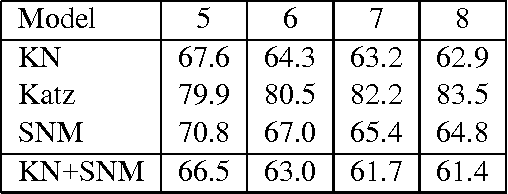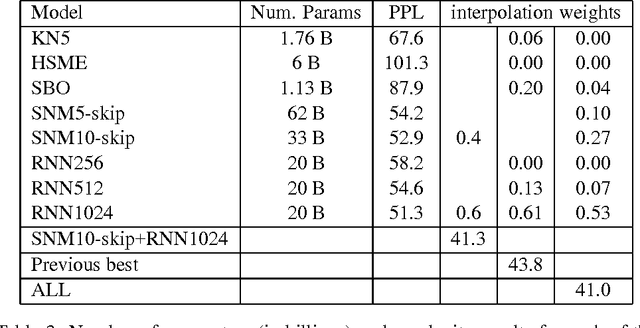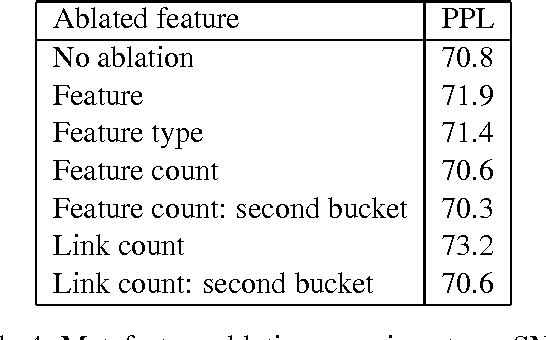Skip-gram Language Modeling Using Sparse Non-negative Matrix Probability Estimation
Paper and Code
Jun 26, 2015



We present a novel family of language model (LM) estimation techniques named Sparse Non-negative Matrix (SNM) estimation. A first set of experiments empirically evaluating it on the One Billion Word Benchmark shows that SNM $n$-gram LMs perform almost as well as the well-established Kneser-Ney (KN) models. When using skip-gram features the models are able to match the state-of-the-art recurrent neural network (RNN) LMs; combining the two modeling techniques yields the best known result on the benchmark. The computational advantages of SNM over both maximum entropy and RNN LM estimation are probably its main strength, promising an approach that has the same flexibility in combining arbitrary features effectively and yet should scale to very large amounts of data as gracefully as $n$-gram LMs do.
 Add to Chrome
Add to Chrome Add to Firefox
Add to Firefox Add to Edge
Add to Edge